Give Your Sleep a Breath of Fresh Air with Ideal Humidity
If you’re struggling to get high-quality rest, stay cool while you sleep, and prevent problems due to allergies, asthma, insomnia, and more—humidity is the key. In this article, we’re going to explore how humidity affects your sleep, why it matters, and what you can do about it. We’re also going to give you all the stats you need to upgrade your sleep environment, including the best humidity level for sleeping.
Why Humidity is Such a Problem
One of the main concerns about high humidity (the concentration of water buildup in the air) is its tendency to feed mold growth. Mold is caused by spores that float through the air all around us. When spaces have poor indoor air quality or excess moisture levels, this can encourage the mold to spread and grow on (and in) your walls, floors, furniture, and anywhere else it can find a warm, moist home. In turn, this can cause extensive damage to your property, your belongings and—yes, even your personal health as you breathe in these spores, causing or aggravating health issues.
Shortness-of-Breath
Excessive exposure to a buildup of mold has been known to make breathing difficult or uncomfortable, especially for children, people with asthma, or people allergic to mold.
Asthma
Studies have shown that mold exposure can sometimes make asthma symptoms worse and even cause it to flare up when it was previously controlled. Some people even list mold as one of their main triggers for asthma attacks or their reason for needing asthma prevention medications.
Allergies
Mold is actually listed as one of the more common environmental allergens, causing sneezing, breathing difficulty, skin irritation, sore throat, and congestion in the nose. Many people find that these symptoms are more likely to be worse in the winter, when the cooler temperatures and indoor heating cause lower air humidity, which causes dry skin, which is more prone to irritation. High humidity, especially in hot temperatures, can also increase the population of dust mites in your mattress and other furniture, which can often cause allergies as well.
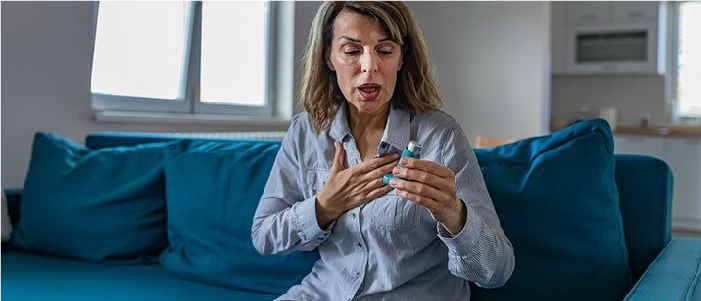
How Humidity Affects Sleep Health
As you may have noticed while reading the section above, the greatest personal health concerns are related to high humidity levels. The same goes for sleep health. According to Sleep Foundation, higher humidity, even without mold, can cause health issues.
Wakefulness
Reduced time in REM or slow-wave sleep; these are the stages of sleep that help you process memories, heal your body, boost your immune system, and gather energy for the day ahead.
Breathing Issues
Since sleep in itself, as well as your sleeping positions, affect your breathing rate and temporary lung capacity, it's even more crucial to maintain excellent air quality in a bedroom environment, where the dampness can aggravate asthma, bronchitis, respiratory infections, allergies, sleep apnea, and other breathing problems that can further disrupt your sleep.
Excessive Sweating
Many people know that ambient heat conditions, such as those found in hot environments, can cause excessive sweating. What is not as commonly known is that high humidity (even in lower temperatures) can cause this condition as well. While essentially harmless, excessive sweating can aggravate skin conditions as well as sleep problems.
In addition, low humidity can be a problem as well. Studies have shown that dry air alone can cause dehydration-related problems such as dry skin, itchy eyes, and sore throat. Lower levels of absolute humidity (water vapor content regardless of temperature) in the air have also been shown to increase a person's risk of developing respiratory infections.
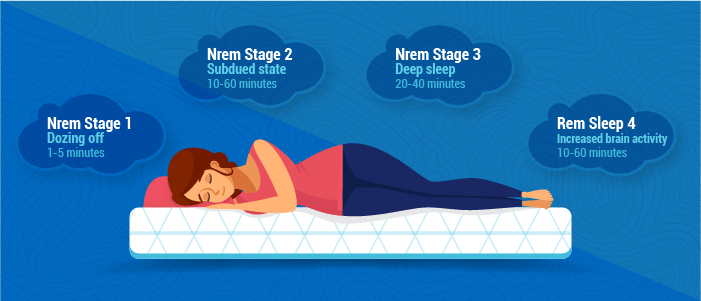
The Ideal Humidity for Sleep
When considering your sleep environment, it's a good idea to think in terms of relative humidity. This is a comparison between the amount of water vapor currently in the air and the amount the air is capable of holding at the current temperature.
While the ideal humidity level for a bedroom environment might be different depending on who you ask, the Environmental Protection Agency firmly states that the ideal indoor humidity should be between 30% to 50%—and should never exceed 60%. If the humidity levels surpass that peak percentage (or drops below the minimum percentage), you and your home are at risk for the associated health and environmental issues listed in the earlier sections.
In terms of sleep, while it is acceptable to keep the humidity within the flexible range, you may also find that you notice a difference in how you feel and how you sleep if that number fluctuates rapidly. Because of this, we recommend utilizing the appropriate appliances to keep your humidity levels as consistent as possible. This will help you create the perfect environment for a restful sleep, and maximize the health benefits you receive.
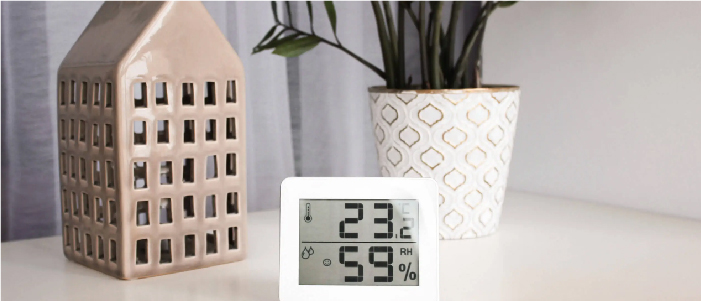
Ideal Temperature for Sleeping
It might surprise you to learn that, while warmer air temperatures can feel more humid, colder temperatures can actually maintain a higher percent humidity level. This is one of the reasons that most experts recommend turning your heat down to 65 degrees Fahrenheit (18.3 degrees Celsius) before you go to sleep. While this may seem a bit cold, it's important to remember that your body temperature tends to rise while you sleep, so higher temperatures may actually be uncomfortable in the long run since your body heat can cause unpleasant sweating and other types of discomfort as you sleep. Plus, the lower temperature is ideal for maintaining a healthy level of humidity in the air all night long.
If you need the temperature to be slightly cooler or warmer, experts say you can safely adjust to anywhere between 60 to 67 degrees Fahrenheit (15.6 to 19.4 degrees Celsius) and still reap similar benefits.
Tips for Optimizing Bedroom Humidity
The best choice you can make to optimize and maintain your bedroom humidity is to purchase a humidistat. This is a device similar to a thermostat (some thermostats even have one built in) that measures the amount of relative humidity in the air and prompts your HVAC system to release vapor, adjust heat, or use air conditioning as needed. This is very different from a hygrometer, which is similar to a thermometer; it will measure the humidity, but you'll need to make environmental adjustments on your own based on the readings. While this tool can be a good starter, it's best to invest in a humidistat for this simplest and most effective strategy.
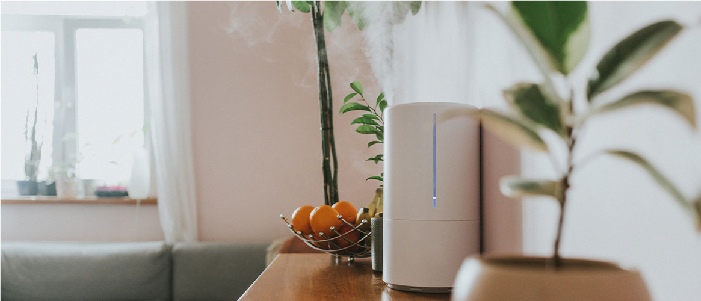
Seasonal Humidity Changes
Depending on the environment you live in—including whether it tends to favor dry heat or moist heat, or is a more humid environment—you will likely need to adjust your home's environmental controls throughout the year to maintain ideal humidity and most comfortable temperature. This can usually be done by using portable or installable systems in your home.
- Air Humidifiers
- Air Conditioners
- Dehumidifiers
If you don't already have these appliances in your home, it may seem daunting to make so many large purchases. If you're having your doubts, we recommend scrolling back up to that earlier section, where we listed the various health issues that can be caused by unideal humidity and temperature. With that in consideration, you can clearly see that the benefits of humidifiers, air conditioners, and dehumidifiers can well outweigh the initial cost.

Maintaining Equipment
Once you invest in whole-home or portable humidifiers, AC units, and dehumidifiers for your home, it's important to keep these appliances in good working order. The ability of humidifiers and other equipment to maintain air quality is greatly affected by their cleanliness and operation. Use your appliance manual to determine what maintenance needs to be performed, when, and stick to that schedule. Never use dirty humidifiers or other appliances! Instead, clean humidifiers, filters, vents, hoses, and other important parts regularly to maintain ideal operation.
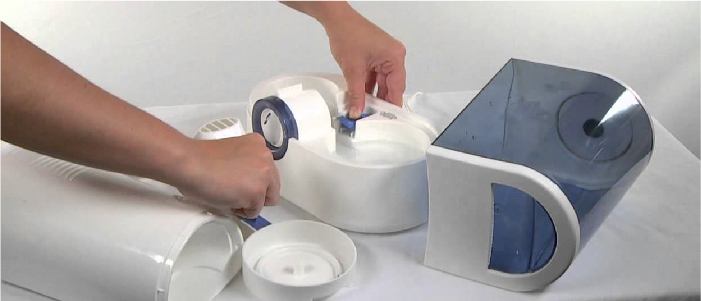
How to Sleep in High Humidity
Depending on where you live, it might be hard to stay comfortable on those hot summer nights. If that's the case, we've got several good tips to help you sleep soundly.
Moderate Air Flow
In the process of attempting to cool off, especially in stifling weather, many people get the impulse to turn the AC temperature up on full blast. However, studies have actually shown that people tend to sleep better with moderate air flow instead, since strong drafts can cause sleep disruption.
Reduce Humidity
In hotter environments, dehumidifiers will be your saving grace. Whether you opt for a portable one or an in-house version, keeping the humidity to a more moderate level will help you feel cooler and more comfortable.
Invest in Breathable Fabrics
Moisture-wicking bed sheets, mattress covers, and even pajamas are excellent at keeping excess sweat from disturbing your sleep. Natural fibers, such as cotton and rayon derived from bamboo, are usually much better at achieving this than synthetic ones.

Upgrade Your Mattress
Memory foam mattresses are popular now due to the increased support and movement distribution. However, it's important to also choose one designed to regulate temperature and provide air flow. Traditional innerspring mattresses are best at this, but foam mattresses can also do the job—especially if they incorporate ventilated, moisture-wicking covers and natural materials, such as latex.
Frequently Asked Questions
Is 70% humidity too high for a bedroom?
Yes, 70% humidity is too high for your bedroom, or any room in your house. According to the Environmental Protection Agency (EPA), the ideal indoor humidity level is between 30% and 50%. Levels exceeding 60% pose a risk of damage to your furniture, appliances, house structure, and even your health.
Is higher humidity better for sleep?
Yes, slightly higher humidity is better for sleep. Experts recommend a temperature range of 60 to 67 degrees Fahrenheit (15.6 to 19.4 degrees Celsius) for ideal sleep conditions. This lower temperature holds slightly more humidity in the air than warmer temperatures, and is usually more comfortable overall.
Does opening windows reduce humidity?
Yes, opening windows can help reduce the humidity levels in your home. This is because the increased air circulation helps to disperse water vapor. If there is a significant breeze, it can also help dry damp surfaces, which can contribute to humidity levels.
What happens if your bedroom is too humid?
When your bedroom is too humid, it can aggravate existing health conditions, such as insomnia. It can also cause excessive sweating, which can irritate your skin and further disturb your sleep. High humidity can also encourage mold growth, which can cause or aggravate additional health problems such as allergies, asthma, and general shortness of breath.

Summary
Humidity levels that are too high and too low can not only damage your home, furniture, and equipment—and cause mold growth. It can also greatly affect your health. Most importantly, it can affect the quality of sleep you get. By using the recommended appliances and methods for maintaining 30 to 50% humidity, you can ensure the best humidity level for sleeping, and get a refreshing night's rest, every night.
Related Articles

 Free delivery across US & Canada
Free delivery across US & Canada Best price guarantee
Best price guarantee Extended 120-day sleep trial
Extended 120-day sleep trial Free in-store mattress testing
Free in-store mattress testing![Best Humidity Level For Sleeping in 2025 [Complete Guide] Best Humidity Level For Sleeping in 2025 [Complete Guide]](https://www.sleepare.com/wp-content/uploads/2022/12/Best-humidity-level-for-sleeping.jpg)









 Showrooms
Showrooms

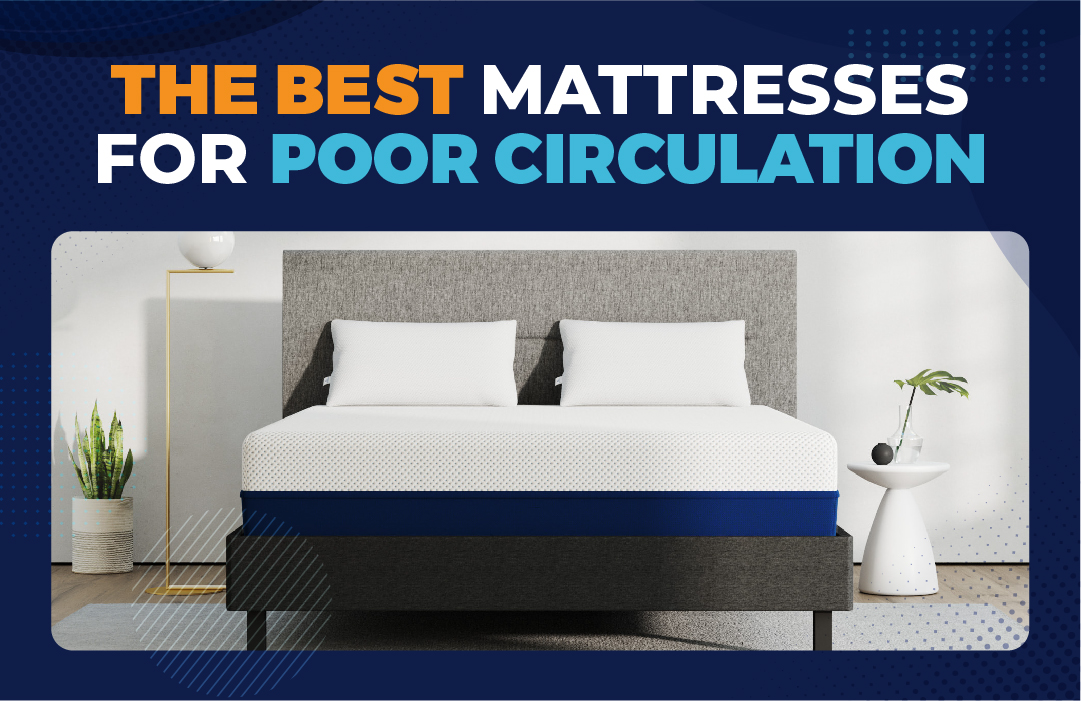



Meet The Author:
Shanir Kol
Shanir Kol, founder and CEO of SleePare, pioneered the “Try and Buy” model in eCommerce, enhancing mattress shopping by combining in-store trials with online purchases. Launching in 1999, his company focuses on customer satisfaction and eco-friendly practices, aiming to minimize mattress waste and expand sustainably.